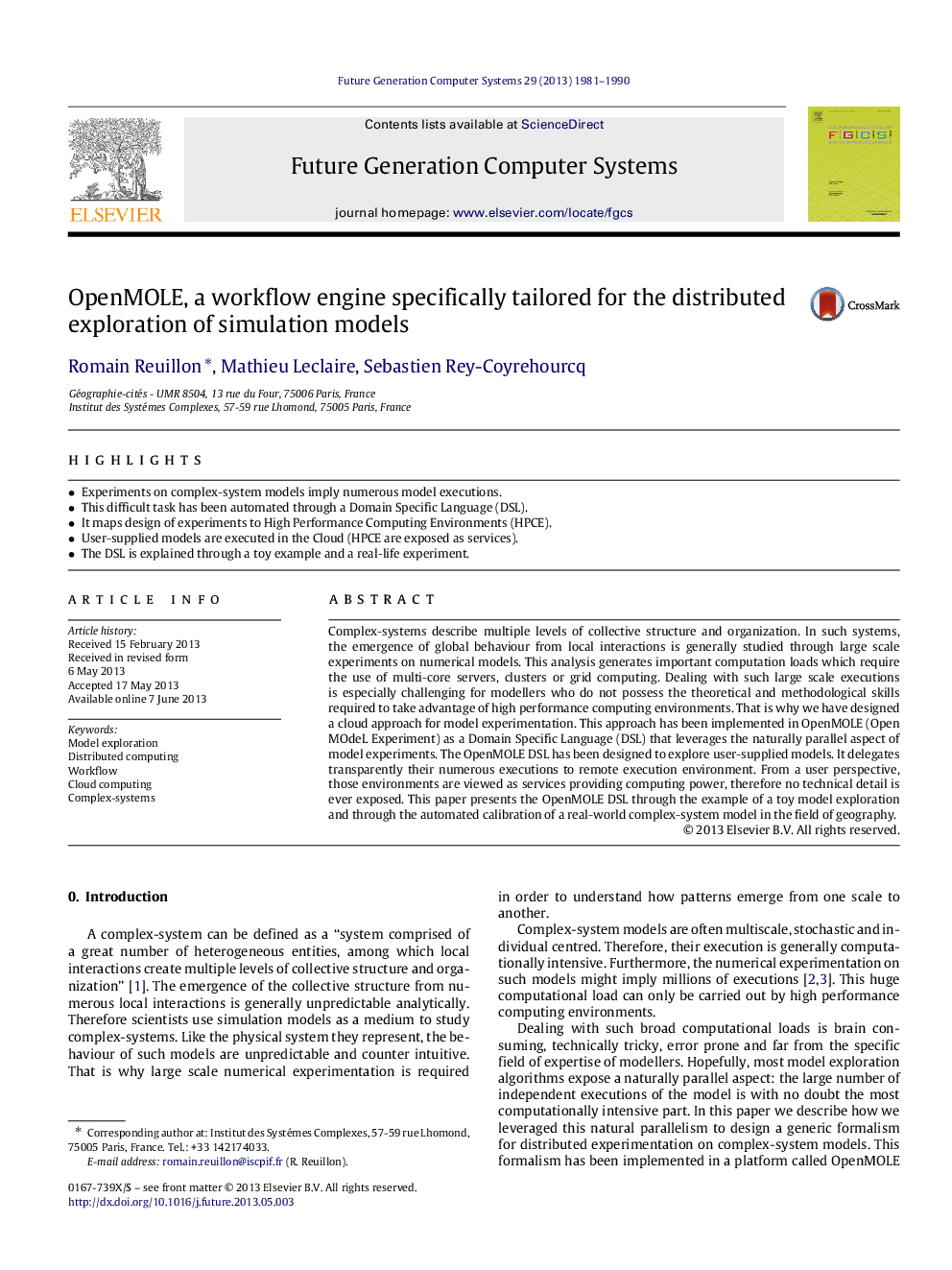| Article ID | Journal | Published Year | Pages | File Type |
|---|---|---|---|---|
| 424620 | Future Generation Computer Systems | 1990 | 10 Pages |
•Experiments on complex-system models imply numerous model executions.•This difficult task has been automated through a Domain Specific Language (DSL).•It maps design of experiments to High Performance Computing Environments (HPCE).•User-supplied models are executed in the Cloud (HPCE are exposed as services).•The DSL is explained through a toy example and a real-life experiment.
Complex-systems describe multiple levels of collective structure and organization. In such systems, the emergence of global behaviour from local interactions is generally studied through large scale experiments on numerical models. This analysis generates important computation loads which require the use of multi-core servers, clusters or grid computing. Dealing with such large scale executions is especially challenging for modellers who do not possess the theoretical and methodological skills required to take advantage of high performance computing environments. That is why we have designed a cloud approach for model experimentation. This approach has been implemented in OpenMOLE (Open MOdeL Experiment) as a Domain Specific Language (DSL) that leverages the naturally parallel aspect of model experiments. The OpenMOLE DSL has been designed to explore user-supplied models. It delegates transparently their numerous executions to remote execution environment. From a user perspective, those environments are viewed as services providing computing power, therefore no technical detail is ever exposed. This paper presents the OpenMOLE DSL through the example of a toy model exploration and through the automated calibration of a real-world complex-system model in the field of geography.
